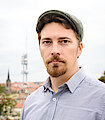The European Green Deal won't deliver justice for workers in Europe's East — just like the economic transition 30 years ago
By Bohumil Čáp | 15.09.2020

With the outbreak of Covid-19, the year 2020 will go down in history as a turning point that forced (not only) EU officials to take unprecedented steps to revive an ailing economy. For parts of Europe, especially in its east, however, it will be become known as the year when another economic transition began.
The last economic transformation in the region began 30 years ago and took place under the banner of liberating the individual and a return to liberal democracy. Economically, it was a transition from centrally planned to market economy, which resulted in an increase in social and economic inequality not only between individuals but also between entire regions. The people most affected by this transition were those in regions dependent on heavy industry. Ironically enough, 30 years ago in Czechoslovakia, it was the protests against environmental pollution in the coal regions that spurred the collapse of the one-party government and it was a workers’ general strike that struck the final blow.
Subsequent privatisations, then, often resembled a fire sale. Because of the currency devaluation, it sometimes paid off for the foreign ‘investors’ to buy a business, break it up and sell it for scrap. Unemployment and inequality were rising and life prospects declining. In this context, jobs in the fossil fuel industry were one last precarious source of social security. To this day, however, these regions have not recovered from the wild transformation of the 1990s.
Thirty years later, we are on the brink of another economic transformation, driven by the effort and urgency to reduce greenhouse gas emissions (GHG). And again, it will mainly affect the inhabitants of heavy industry-dependent regions.
What the Green Deal means for Europe’s East
As part of the ‘European Green Deal’ (EGD), the European Commission’s flagship climate policy, President Ursula von der Leyen is expected to announce an increased emissions reduction target of 55 per cent (up from 40 per cent) during her State of the Union speech on 16 September. At the same time, however, the financing of the Just Transition Fund – established to win over coal-dependent regions in Europe’s East – has been slashed from €40bn to just €10bn in the recent EU recovery fund and budget negotiations. It is no wonder, then, that the prospect of another transition raises concerns, mistrust and a rejection of the need for climate policy – even more so if national governments, too, have not given much-needed support.
Von der Leyen’s EGD is, in one sense, undoubtedly an ambitious undertaking to make the EU a global climate leader, which hopefully other major global powers will eventually join the race. It also seems ambitious in its rhetorical commitment to the social aspects of the transformation. That’s in no small part due to the trade union movement, which has successfully promoted the principle of socially just transition and made it part of the preamble to the Paris Agreement and now the cornerstone of European climate transformation policy.
If giving up on ambitious social transformation seems to be the price for climate ambition, then it is simply not truly ambitious.
Unfortunately, however, that’s about all that can be expected from the EGD, as it was introduced to only address the question of justice in the transformation. Of course, taking workers into consideration is good, but justice does not mean to only consider the wronged side. It is not just about the process, but also the result. In other words, when this transformation under the EGD takes place, the result may well be a reduction in GHG emissions, but for workers and communities it will be business as usual.
What if the redundant workers do not get a job even after reskilling (be it for their age, gender, family situation or colour of their skin)? Or they get one, but it will be paid less? Or it will be some form of precarious work? Or they will have to move and break their social ties? How will access to education, health care and social protection – which is crucial to succeed in the labour market – change? A just transition should also be a transition towards justice. The GDE dusts up old recipes relying on public-private partnerships without actually striving for a more just and more democratic society and economy.
Justice during and after the transition
The response to the current crisis, caused by the Covid-19 pandemic, gave us a glimpse of a completely different, non-meritocratic society. Everyone deserved help because not having a job and/or the means to pay the rent is often not one’s own fault. We should take seriously the lessons we learned. It means that, in the context of the just transition, it would be fairer (and more effective) to simply guarantee a steady income to workers affected by decarbonisation, instead of guaranteeing reskilling and giving it another try in the labour market. This is something that trade unionists and environmental NGOs agree on.
Another tool is conditionalities under which companies will be allowed to receive European money. These open up a whole range of measures that would mean a shift towards justice, from mandatory involvement in national social dialogue structures, greater participation of workers through more inclusive HR policies, shorter working hours to higher contributions to public services.
If giving up on ambitious social transformation seems to be the price for climate ambition, then it is simply not truly ambitious. The EGD does not require binding coal phase-out plans. The support for natural gas infrastructure is not out of the way. The GHG reduction goals are insufficient to stay within the Paris Agreement goals. And above all, the EGD completely fails to address the underlying driver of the climate crisis: an economy based on endless growth that is incompatible with the principle of sustainability.
Just another transition
Sometimes the debate on the just transition is presented as if social and climate interests are at odds with each other. In such a view, the shortcomings on both sides are a sign of compromise leading to partial progress. Apart from the fact that we cannot afford the luxury of partial progress, this antagonism is simply not true. It is the workers who carry the burden both ways.
So if the GDE is a compromise, and very little in politics is not, then it is not a compromise between social and climate justice but rather between justice and economic power.
Not being able to live a fulfilling life because of bad working or environmental conditions makes no difference in the end. It is no coincidence that 30 years ago, environmental activists and workers stood on the same side of the barricade. Those who now pit these two interests, social and climate, against each other are those who live off the exploitation of both natural and human resources – so those from whom social and climate justice needs to be demanded.
But there is no such recognition in the EGD proposal. On the contrary, it is perfectly possible that the owners of fossil fuel businesses still make money from the transformation – if not directly in the form of bail-outs (as is already happening), then through other activities related to, for instance, the winding-down fossil fuel infrastructure or public investment. So if the EGD is a compromise, and very little in politics is not, then it is not a compromise between social and climate justice but rather between justice and economic power.
In this struggle, Eastern Europe is trapped in lower tiers of supply chains than its western neighbours – and than before the last transformation. This, together with industrial relations – the balance of power between labour and capital – determines the well-being of workers. The impact decarbonisation will have on the ranking of Eastern European economies within supply chains and on the industrial relations therefore shapes the enthusiasm with which we should embrace it and the demands we should formulate.
So while it is true that there is no work nor justice on a dead planet, it is also true that unless Europe emerges more wealthy, just and cohesive from this transition, the rest of the world are not likely to follow its example. In this context, cutting the EU’s Just Transition Fund while increasing GHG reduction targets simply means wanting more for less. But unless we put money where our mouth is and think about what comes after decarbonisation, our efforts will result in just another transition that has not delivered, neither globally nor locally.

Prague
Bohumil Čáp is International Deputy Secretary of Czech-Moravian Confederation of Trade Unions and Vice-president of the Budoucnost political party.












